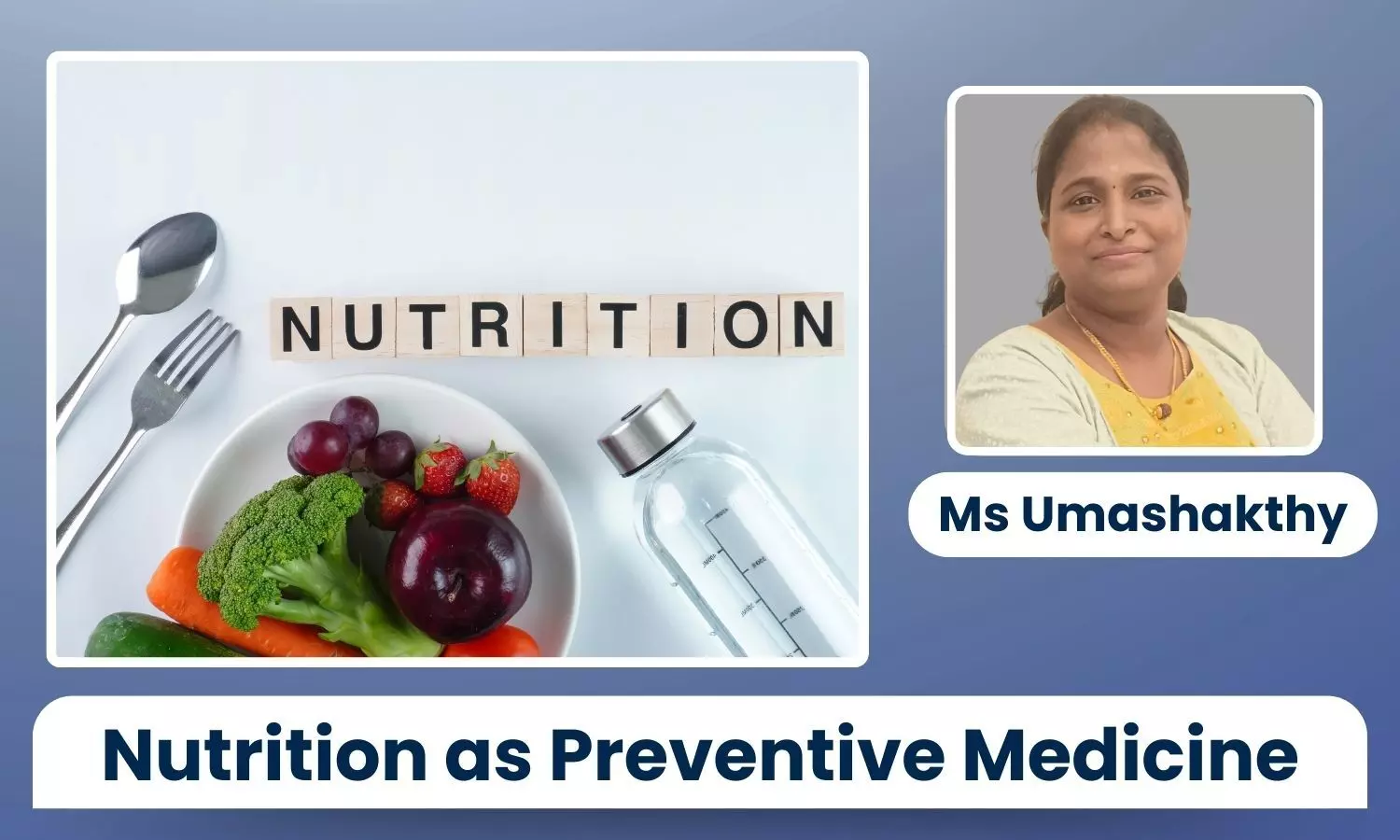Nutrition as Preventive Medicine – How Eating Right Can Curb India’s Diabetes Burden - Ms Umashakthy

Diabetes is one of the rising global concerns, affecting many people across urban and rural regions. Even though genetics plays a major role, environmental factors, including healthy lifestyle and food habits, do contribute to a major extent to the epidemic of diabetes confronting India.
Proper nutrition is considered a preventive medicine for lifestyle disorders. By making healthy food choices, Indians can lower the risk of developing type 2 diabetes. In addition, we can prevent or delay the diabetes-related complications.
Why Nutrition Matters in Diabetes Prevention
The food we eat has a direct impact on our blood glucose and insulin response. Unhealthy food contributes to unhealthy weight gain. A diet which is rich in simple carbs, fried foods and sugary drinks causes insulin resistance, which ultimately leads to diabetes.
On the flip side, foods which are dense in nutrients like protein, fibre and micronutrients and low in fat do the opposite. Therefore, proper nutrition acts as a shield against chronic disorders.
The Indian Diet Challenge
Traditionally, India has a diverse food culture. Modernisation has made the diets unhealthy and erratic. Urbanisation and busy work schedules force us to use easily available processed and ultra-processed foods, which are generally rich in calories and fats.
Use of millets, pulses and fresh vegetables, which were considered traditionally staples, has drastically declined. This transition has made India the diabetes capital of the world.
Eating Right as a Preventive Strategy
Follow healthy food habits to reduce the risk of diabetes.
1. Opt for whole grains instead of refined foods: Brown rice, millets (ragi, bajra, jowar) and oats are rich in fibre, which prevents sudden spike in glucose levels.
2. Have more fruits and vegetables: Fresh fruits and vegetables are not only rich in fibre but also have a lot of vitamins, minerals and antioxidants that are good for our body. Green Leafy vegetables, water gourd and seasonal fruits are excellent choices.
3. Include high-quality proteins: Proteins from fish, chicken and egg white are more easily assimilated by the body than plant proteins. However, pulses, legumes, nuts and seeds are good too because they contain fibre and antioxidants in addition to protein. Both plant and animal proteins help in reducing weight and blood sugar.
4. Try and avoid fatty and sugary foods:
Swapping sugary foods, deep-fried foods and beverages with nuts, seeds, buttermilk or fresh fruit or veggie salads helps to reduce insulin resistance.
Portion control and mindful eating
Indian culture is characterised by heavy meals rich in fats, carbs and sugars, especially during social functions and festivals. Have a smaller portion to avoid overeating.
Nutrition for Those at Risk
People who have a strong family history of diabetes or those who have prediabetes must follow a strict diet regimen. Precise nutrition recommendations need to be strategised and followed. When a strict diet is combined with regular exercise and periodic check-ups, the risk of diabetes decreases significantly.
Public Health Implications
If everyone in India embraces nutrition as preventive medicine, it can reduce the burden of costly treatment for chronic diseases on the healthcare system.
Health education and diabetes awareness programmes should be conducted in schools, workplaces and public places to encourage healthier eating habits. Families should revive traditional cooking practices that are naturally diabetes-friendly.
Conclusion
Winning the battle against diabetes through medicines alone is difficult and costly, especially for a developing country like India. The key to preventing diabetes lies in our kitchens and on our plates.
Making healthy food choices can be effective and affordable. By recognising nutrition as preventive medicine, individuals and communities can take charge of their health and build a healthier future.
Disclaimer: The views expressed in this article are of the author and not of Health Dialogues. The Editorial/Content team of Health Dialogues has not contributed to the writing/editing/packaging of this article.


